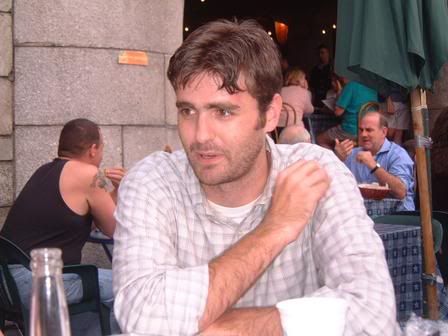2009: The Year It Became Cool To Be Smart
 After Obama's win in the 2008 election, there was a lot of talk about the end of the "dumb-as-I-wanna-be," Joe Six-Pack style of politics embodied by George Bush and, more recently, Sarah Palin. While labeling those two as practitioners of "dumb politics" is a bit reductive, there is a lot of validity to the idea that Obama is a bit more bookish than the average politician, and that played in his favor once the economic crisis started; it just felt better having a smart dude in the White House during times like these.
After Obama's win in the 2008 election, there was a lot of talk about the end of the "dumb-as-I-wanna-be," Joe Six-Pack style of politics embodied by George Bush and, more recently, Sarah Palin. While labeling those two as practitioners of "dumb politics" is a bit reductive, there is a lot of validity to the idea that Obama is a bit more bookish than the average politician, and that played in his favor once the economic crisis started; it just felt better having a smart dude in the White House during times like these.There have since been a lot of organizations trying to explain the financial crisis, as it is a situation so far beyond the understanding of normal folks. One of the best has been a public radio project called "Planet Money." It's a joint effort between NPR's Adam Davidson and Alex Blumberg, and it's been distributed mostly through the programs All Things Considered and This American Life. The shows that they've done for This American Life are among the most fantastic pieces of reportiing and storytelling I've ever heard. Listen to Part 1 ("The Giant Pool of Money"), Part 2 ("Another Frightening Show About the Economy"), and the latest, Part 3 ("Bad Bank").
Another example of how it's cool to be smart these days is the Khan Academy, a not-for-profit organization that provides tutorials on math, science and, most recently, finance and the banking crisis. In simple, 10-minute videos, the site breaks down concepts like liquidity, examines what happens when a bank fails, and traces the fall of housing prices. It's an incredible resource for anyone hoping to learn more about just about anything math or science-related.
It's quite encouraging that the response of so many people to this banking crisis is to try to learn more about it and understand the complexities. It's no longer acceptable to simply say, "Bankers have always been crooks, it's no different today," or "That's for other people to figure out." There's a sense that we're all in this together, that good ideas about the economy could come from anywhere. It's kind of scary, but pretty exciting too.


1 Comments:
Thanks for sharing this article. Bye the way, I love Khan Academy because the math videos are absolutely amazing. I read it on another blog that 90% of the videos are taken in a single shot. Just imagine, how much hard work these guys are putting in.
Post a Comment
<< Home